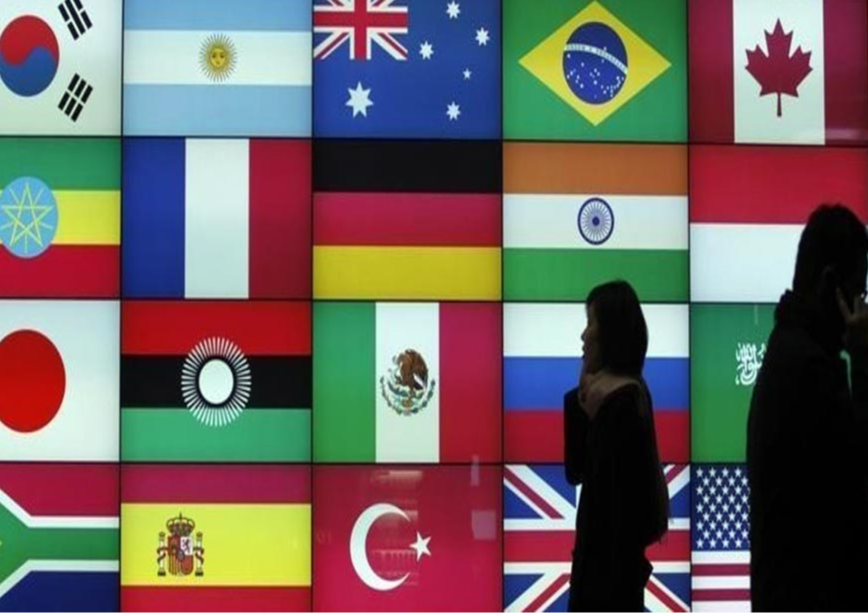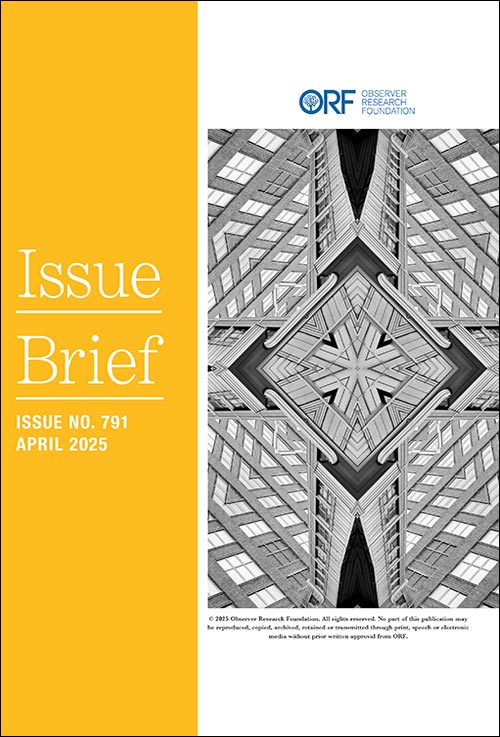
During the Raisina Dialogue 2024, The External Affairs Minister (EAM) Dr S. Jaishankar reiterated India's perceptions of the current international system. He asserted that the post-1945 international order, while not broken, is certainly less effective and needs to be changed. However, changing the world order is often seen as revisionism—a taboo in the International Relations (IR) lexicon. It is often equated to the destruction of the existing international order, overshadowing the fact that revisionism can be constructive, and can usher in a positive change. In this context, this article focuses on how India, under the Modi government, is constructively changing the international order by making it more representative, legitimate, and solution-oriented.
Revisionism and its constructive side
The word revisionism in IR refers to a state(s)’ intent to alter or reconstitute the international order to its benefit. The revisionism of the order is considered taboo because states pursuing such a strategy have, in the past and current times, sought the destruction of the existing order. While pre-1945 illustrations include Napoleonic France and the erstwhile Soviet Union, currently China and Russia are considered revisionist powers because of their aggressive actions threatening the norms of sovereignty and international law. This can be seen in China’s grey-zone warfare in the South China Sea and against India, and Russia’s annexation of Crimea and the war against Ukraine.
India is trying to bring changes to the West-dominated order in a constructive manner so that it accommodates India’s ambitions.
However, the destructive revisionist tendencies of these powers often overshadow the constructive side of revisionism. For example, India is not taking aggressive actions against the norms and institutions of the international order to promote its interests, which at the international level is to become a leading power of the Global South. Instead, India is trying to bring changes to the West-dominated order in a constructive manner so that it accommodates India’s ambitions. Towards this end, India envisions changing the current West-led order into a multipolar one where India could act as one of the poles. In this endeavour, India is not only shouldering greater global responsibilities to showcase its capacities but also working with other states to make positive contributions to the world order. Thus, India is collaborating with like-minded countries to make international institutions more representative and evolve new mechanisms that can find solutions to challenges facing nation-states.
India’s constructive revisionism
India's constructive revisionism was reflected during the early years of the Modi government when the international discourse was filled with the crisis that the international order was facing. Prime Minister Modi and EAM’s speeches at the United Nations in 2014 and 2015, respectively, conveyed India’s problems with the international system, particularly the need to update the post-1945 architecture of the United Nations and its decision-making body—the United Nations Security Council (UNSC), making it more representative and legitimate. Even in the current times, the UN has failed to end the conflict in Ukraine or between Israel and Palestine. Institutions of global economic governance have failed to cater to the developmental needs of the Global South when globalisation has increased wealth inequalities and created undesirable dependencies. Issues such as climate change, terrorism and nuclear security continue to be deprived of solutions and coordination. In view of the problems caused by the current order, it is countries like India that have expressed the need to rise above divisions and competition to work together for the global good. For example, India has made crucial efforts to combat terrorism through sponsoring the draft legal framework of the Comprehensive Convention on International Terrorism.
Institutions of global economic governance have failed to cater to the developmental needs of the Global South when globalisation has increased wealth inequalities and created undesirable dependencies.
India has also sought to create alternative systems and norms that benefit all stakeholders in the international system. Since no single country can alone create such systems, India has promoted or created coalitions/partnerships with like-minded countries on issues of mutual importance. Since 2014, India has joined or initiated 36 groupings in different domains. Against the power-centrism of the current IO, India seeks to build 'offering solutions to humanity's problems' as the new norm or agenda of these coalitions/partnerships. Through institutions such as G20, International Solar Alliance, Indian Ocean Rim Association (IORA) and Coalition for Disaster Resilient Infrastructure (CDRI), India is actively reconstructing the world order by offering sustainable solutions to challenges faced by humanity.
Regarding climate change and energy security, India and France launched the International Solar Alliance in 2015 to facilitate energy access, security and transition worldwide by providing clean electricity to all by 2030. This coalition of 90 member states has set up Solar Technology and Application Resource Centres (STAR-C), which builds human capacity and skills within member countries to undertake energy transitions. At COP26, India and the UK partnered with ISA and the World Bank to launch the Green Grids Initiative—One Sun, One World, One Grid, which aims to connect 140 countries and develop infrastructure for clean energy.
India is also actively working to ensure maritime security and prosperity in the Indo-Pacific, and the Indian Ocean region in particular, which accounts for around 80 percent of maritime oil trade and around US$10 billion tons of commerce. In line with its Security and Growth for All in the Region (SAGAR) policy, India has established the Information Fusion Centre-Indian Ocean Region (IFC-IOR), which provides real-time information to its partners to ensure maritime security. Moreover, the Indian Navy frequently conducts anti-piracy operations in the region extending from the Gulf of Aden to the Malacca Straits, the latest being operations to save MV Lila Norfolk and MV Ruen from Somali pirates. India is also working with countries such as Bangladesh, Myanmar, Mauritius, Kenya, and Mozambique to boost the Blue Economy by sustainably extracting ocean-based resources for the mutual development of regional economies.
The Indian Navy frequently conducts anti-piracy operations in the region extending from the Gulf of Aden to the Malacca Straits, the latest being operations to save MV Lila Norfolk and MV Ruen from Somali pirates.
On the front of building disaster resilience, India launched the Coalition for Disaster Resilient Infrastructure (CDRI) in 2019 as a global partnership of national governments, multilateral agencies, the private sector, and academia, to promote climate and disaster-resilient infrastructure. This includes efforts for disaster response and recovery support, building upon India's stellar record in providing help to neighbours during disasters, such as the 2004 tsunami and Nepal earthquake in 2015. In 2021, CDRI created the Infrastructure for the Resilient Island States (IRIS) initiative to cater to the infrastructural resilience of 58 Small Island Developing States (SIDS). It has also launched projects to develop early warning capabilities and strengthen infrastructure capacities in Fiji, Marshall Islands, Papua New Guinea, Dominica, Maldives, and Haiti.
At its G20 presidency, India bridged divides by inducting the African Union (collectively integrating 55 African nations) as a permanent member of the group and mainstreaming the voice of the Global South in shaping global solutions. Working to reduce debt vulnerabilities, India’s presidency of G20 made significant progress on debt restructuring of Zambia, Ethiopia, and Ghana through the Common Framework for Debt Treatments and of Sri Lanka through the Creditor Committee. India also revived multilateralism by generating consensus on implementing the 2023 Action Plan to Accelerate Progress on SDGs by setting up a New Collective Quantified Goal of Climate Finance from a floor of US$100 billion a year. In this context, India also co-launched the Global Biofuel Alliance to expedite the global uptake of biofuels.
The benefits of these alternative systems are already recognised in many forums in that they offer fair opportunities for hitherto marginalised states to satisfy their needs and share and contribute to global prosperity.
Indeed, the successful functioning of these organisations reflects the emergence of a multipolar order—where India will also be one of the poles. Through the above examples, India shows that when post-1945-built institutions failed to maintain order and cater to the development needs of developing countries, alternative systems for global governance could be established that provide solutions for critical issues facing humanity as a whole. India advocates that this solution-oriented action at the international level should be the new norm or agenda of institutions. The benefits of these alternative systems are already recognised in many forums in that they offer fair opportunities for hitherto marginalised states to satisfy their needs and share and contribute to global prosperity. It is the functioning of these coalitions of like-minded countries on issues of mutual concern that reflects the arrival of multiple poles in the international arena.
Conclusion
Thus, the problems of the West-led international order have necessitated its revisionism. While destructive revisionism, led by China and Russia, is certainly not desired, constructive revisionism attempts to make the international system more legitimate and solution-oriented. India is constructively revising the IO by promoting or creating institutions that provide actionable solutions for problems facing humanity. Through substantive efforts, India is ensuring the successful functioning of these organisations and helping facilitate the emergence of a multipolar order.
Satyam Singh is a Research Intern at the Observer Research Foundation
(Note: This article is adapted from the author’s thesis at The London School of Economics and Political Science titled ‘Problematising Revisionism: India’s Constructive Revisionism Under the Modi Government’.)
The views expressed above belong to the author(s). ORF research and analyses now available on Telegram! Click here to access our curated content — blogs, longforms and interviews.




 PREV
PREV


